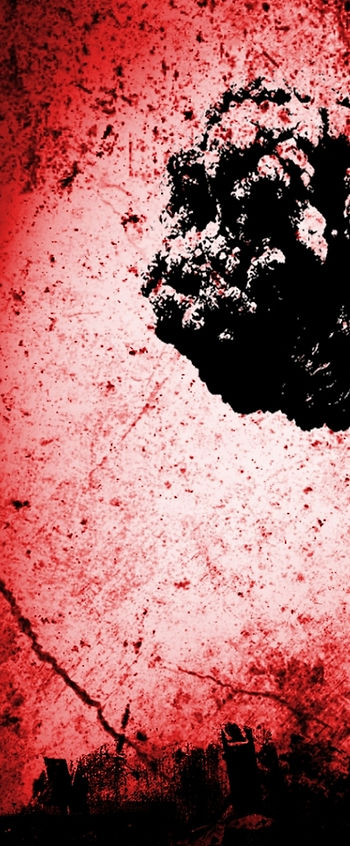

THE RED SCARE: Concert Series
at The Deutsches Haus NYU
Music by jewish and jewish communist composers of the World War II Era
PRE-WWII
February 3, 2012
6:30pm
Kurt Weill
The Seven Deadly Sins (selections) - song cycle for mezzo-soprano and piano, 1933
Soprano: Kala Maxym
Pianist: Dr. Lloyd Arriola
Erich Wolfgang Korngold
Drei Lieder, Op. 22
Marietta's Lied from Die tote Stadt
- for soprano and piano
Soprano: Jeanai La Vita
Pianist: Dr. Lloyd Arriola
Kurt Weill
The Threepenny Opera
(selections) - for voice and piano
Opera Ballad of Mack the Knife
Army (Cannon) Song
Ballad of the Easy Life
Survival Song
And other Kurt Weill selections
Nannas Lied (1939)
Youkali (1935)
Jattends un Navire (1934)
Mezzo: Darcy Dunn
Baritone: Mark Singer
Pianist: Dr. Lloyd Arriola
DURING THE WAR - ENTARTETE MUSIK
March 9, 2012
6:30pm
Degenerate music (German: Entartete Musik) was a label applied in the 1930s by the Nazi government in Germany to certain forms of music that it considered to be harmful or decadent. The Nazi government's concern for degenerate music was a part of its larger and more well-known campaign against degenerate art ('Entartete Kunst'). In both cases, the government attempted to isolate, discredit, discourage, or ban the works.
Anton Webern
5 Lieder, Op. 4 - for voice and piano, on poems by Hildegard Jone
Tenor: Peter Furlong
Pianist: Dr. Lloyd Arriola
Erich Wolfgang Korngold
Prelude to Act 3 from DAS WUNDER DER HELIANE
- for piano
Pianist: Dr. Lloyd Arriola
Arnold Schoenberg
Drei Klavierstücke, Op. posth. (1894) - for piano
Pianist: Dr. Lloyd Arriola
Arnold Schoenberg
6 Lieder, Op. 8 - for voice and piano
Soprano: Courtney Ross
Pianist: Dr. Lloyd Arriola
WWII and its Aftermath - THE RED SCARE
June 15, 2012
6:30pm
If World War II was one of the most important and tragic events in twentieth century American history, it was doubly so for American Jews. The war had a transfiguring effect on American Jews and on their idea of themselves as Jews. The final concert in this three part series will focus on the aftermath of World War II, as seen through the works of two Jewish composers, Hanns Eisler (who finally settled in California after fleeing Nazi Germany), and Leonard Bernstein, who's popularity was greatly threatened by his left-wing activities as early as the mid-1940s.
Hanns Eisler*
Hollywood Songbook (selections) - for baritone and piano
Baritone: Kelvin Chan
Pianist: Wei-En Hsu
Leonard Bernstein*
Arias and Barcarolles (selections) - for mezzo, baritone, one piano / 4 hands
Mezzo: Elspeth Davis
Baritone: Vince Vincent
Pianist: Wei-En Hsu
Pianist: Ling Yu Hsiao
*Eisler Notes: After 1933, Eisler's music and Brecht's poetry were banned by the Nazi Party. Both artists fled, first to Moscow, where The Decision was produced and staged. Eventually, Eisler and Brecht sought refuge in the United States, along with other exiles fleeing Nazi Germany. Eisler's two most notable works of the 1930s and 40s were the monumental Deutsche Sinfonie a choral symphony in eleven movements based on poems by Brecht and Ignazio Siloneand, a cycle of art songs published as the Hollywood Songbook. With lyrics by Brecht, Eduard Mörike, Friedrich Hölderlin and Goethe, it established Eisler's reputation as one of the twentieth century's great composers of German lieder.
*Bernstein Notes: During the long reign of J. Edgar Hoover, Leonard Bernstein was a person of considerable interest to the Federal Bureau of Investigation. Although Hoover's operatives began tracking Bernstein's left-wing activities as early as the mid-1940s, the first serious inquiry came in March 1949, when David Niles, President Truman's administrative assistant, asked the Bureau to look into the young musician's background. Niles wanted the information because Truman and Chaim Weizmann, the first President of Israel, were scheduled to attend an event at which Bernstein was slated to perform. A memo from D. M. Ladd to Hoover states that Bernstein was connected, affiliated, or in some manner associated with various organizations described as Communist fronts.